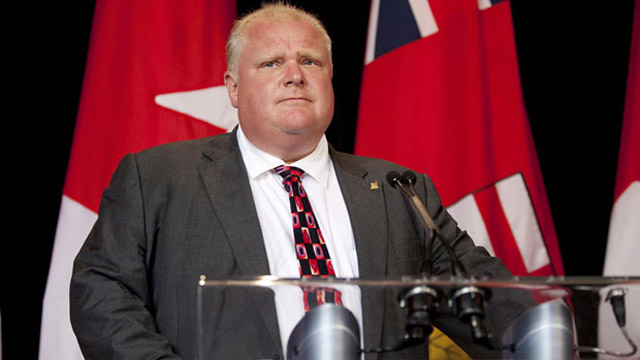The media has a habit of praising public figures upon death, even—and perhaps especially—when they were criticized in life. Media coverage of Rob Ford’s death has been markedly different from how he was covered as mayor of Toronto. Ford was caught smoking crack cocaine, denied it, and then finally admitted it, saying it probably happened in one of his, “drunken stupors.” The Toronto media was very hard on Ford while he was alive and during his term as mayor. But after his passing last week at age 46, suddenly, media coverage of Ford was far more positive than it had ever been before.
When Ford was alive, he was an embarrassment to Toronto, but now that he is dead, many in the media are saying that Ford was a good man who must be honoured. Edward Keenan of the Toronto Star wrote an obituary where he said in spite of everything, he believed that Rob Ford meant well. Keenan’s colleague, Daniel Dale, had previously sued Ford because he called Dale a pedophile—in this instance, Ford clearly did not mean well. Yet soon after his death, City News ran a story online asking whether Rob Ford should have a statue or a park built in his honour.
Rob Ford is not unique in receiving criticism while alive and accolades after death. Michael Jackson was primarily in the news for his scandals and allegations of sexual misconduct with children. It was only once he had passed away that the narrative shifted back to how he was an incredibly talented and innovative musician. In a similar vein, Amy Winehouse was mocked and scandalized for her behaviour when she was alive; posthumously, she was widely celebrated as a beloved and tragic icon.
The media should act in the public interest and hold politicians like Rob Ford accountable for their actions. The Toronto media was therefore right to scrutinize Ford as mayor and criticize him when he abused his power and acted inappropriately; but for that very reason it is disappointing to see the media glorify him in death. If the media really believed thatFord was a good man when he was mayor, it certainly did not cover him that way or give him the benefit of the doubt. It seems cheap and even exploitative to only highlight someone’s positive qualities when that person is dead. Ford’s negative qualities did not go away when he died, and it is only fair to remember him as the person he was.
Ford’s passing demonstrates why it is important for the media to remember the humanity of the subjects they cover. It was only in death that Ford’s humanity was recognized. Being dead does not retroactively make Ford a better person or a better mayor. Ford was a complex man. He said boted things about the LGBT community and visible minorities, and he often did not live up to the responsibilities of his elected office. But this is not the only side to his story. He also tried to help any constituent who needed him. Ford was not a demon when he was alive, and he is not a saint in death. Ford was a flawed person—as many people are.










